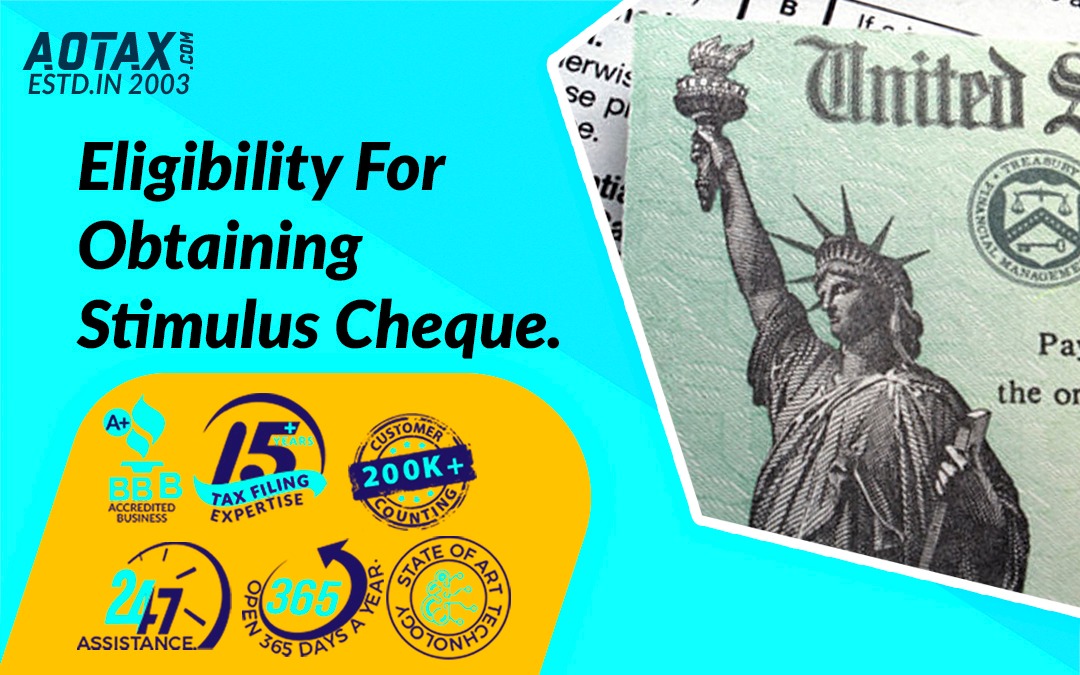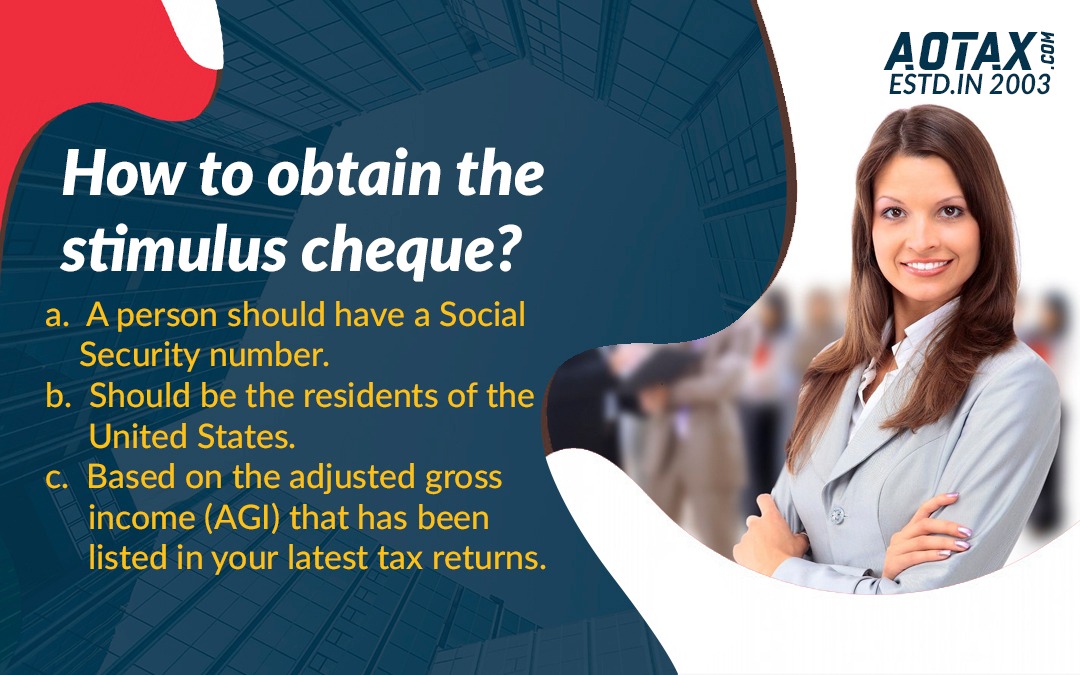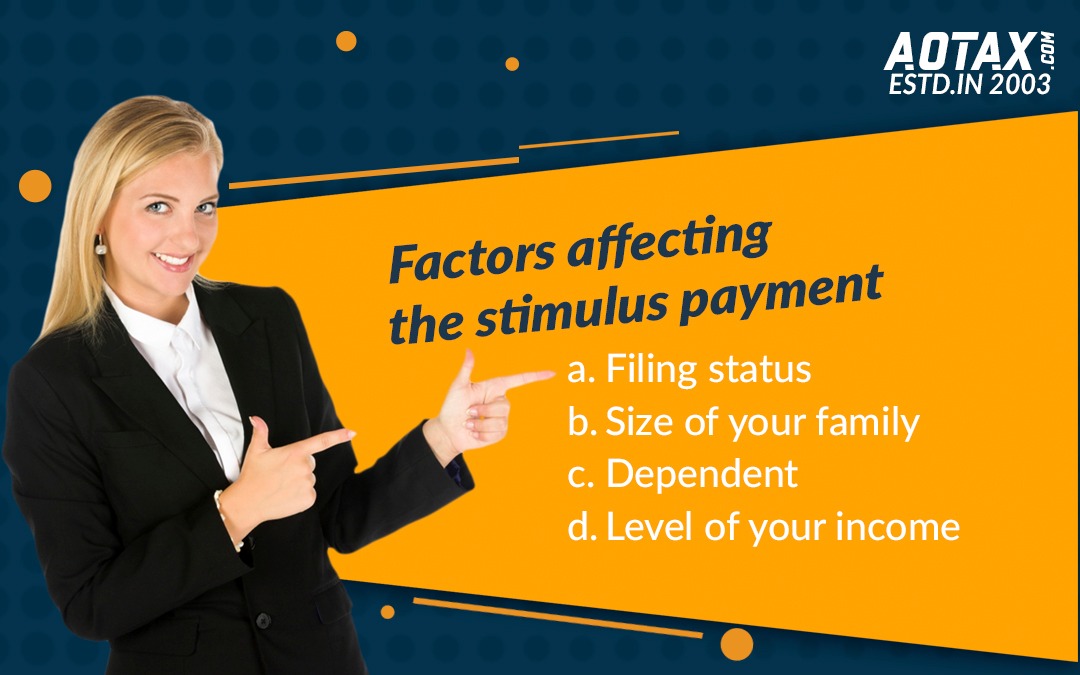
The non-filer NRIs in the US and the Economic Impact Payment co-relation
The non-filer NRIs in the US and the
Economic Impact Payment co-relation
The US Government has passed the CARES Act under which the US citizens and the US resident aliens would be receiving Economic Impact Payments (EIP). This is an initiative by the Federal Government to provide aid and alleviate the economic stress caused to the Americans due to the pandemic COVID-19. The IRS would be calculating and sending the Economic Impact Payments (EIP) to the eligible Americans. Currently, millions of Americans have already received their EIP and many more EIPs are being processed by the IRS.
Eligibility for the receipt of Economic Impact Payment (EIP)

The US citizens, permanent residents, and qualifying resident aliens can receive the EIP if
- They have a valid Social Security Number
- They have not been claimed as a dependent of any other taxpayer
- They have Adjusted Gross Income (AGI) under certain limits.
The US citizens and the US resident aliens would receive $1200 or $2400 as EIP depending upon certain criteria. The threshold for Adjusted Gross Income (AGI) of the Americans to receive the EIP is noted below.
- Adjusted Gross Income (AGI) up to $75,000 for those filing tax returns as Single
- Adjusted Gross Income (AGI) up to $150,000 for those who are married couples and are filing their tax returns jointly.
- Adjusted Gross Income (AGI) up to $112,500 for the head of household filers.
For those eligible taxpayers who have filed the tax returns for 2018 or 2019, the EIP would be received automatically. Moreover, those eligible retirees who do not file a tax return but are recipients of SSR (Social Security Retirement), Railroad Retirement benefits, Supplemental Security Income, VA Compensation, and Pension, etc. would obtain their EIP automatically.
Non-filer NRIs and their EIP
However, some NRIs or resident aliens might be having low income or not filing tax returns. These non-filer NRIs are also eligible for obtaining their EIP but they will have to enter their information with the help of the IRS webpage.
The IRS webpage consists of a tool “Non-Filers: Enter Payment Info Here” by which the non-filer NRIs can enter their payment information. This information can be used by the IRS to issue the EIP for the Non-filer NRIs.
An NRI would not be required to file a federal income tax return for the year 2019 due to any of the below-mentioned reasons.
- If the income of the NRI is less than $12,200 then there would be no necessity to file the Federal Income tax return for the year 2019.
- In case the NRI is married, filing his Federal tax returns jointly with his spouse and has an income less than $24,400 then he would not be filing the Federal Income Tax Return for 2019.
- If the NRI has no income, then he would not file the Federal Income Tax Return.
Information needed to be provided by the NRI
The non-filer NRI needs to provide some important information in the “Non-Filers: Enter Payment Info Here” tool to obtain his EIP.
- Full Name of the NRI, his email address, and present mailing address.
- NRI’s date of birth and Social Security Number (SSN).
- Bank Account Number of the NRI
- Driver’s license or any ID issued by the State Government.
- IP PIN (Identity Protection Personal Identification Number) provided by the IRS in the previous year. In case an NRI has lost the IP PIN, then he must log in to another IRS tool i.e. “Get an IP PIN” for obtaining a new IP PIN.
- For every qualifying child in the year of 2019, the NRI has to share details such as Name of the child, child’s Social Security Number, Adoption TIN, and his relationship with the NRI or with his spouse.
Procedure to use “Non-Filers: Enter Payment Info Here” tool
- An account must be created by the use of an email address and phone number. By this, the NRI would obtain a user ID and password.
- In the next step, information related to the filing status such as “Single” or “Married filing jointly” need to be filled up along with other personal information.
- A box asking whether the NRI or his spouse can be claimed as a dependent by someone must be checked.
- Further, bank information needs to be entered followed by another screen where the NRI can enter his personal information to verify himself.
With this, the procedure to complete the Non-Filers information is completed and an acknowledgment would be received by the NRI regarding the completion of the procedure. The Free Fillable Forms, a trustworthy partner of the IRS would use this information and complete Form 1040, compute the EIP, and send it to the recipient.






Recent Comments